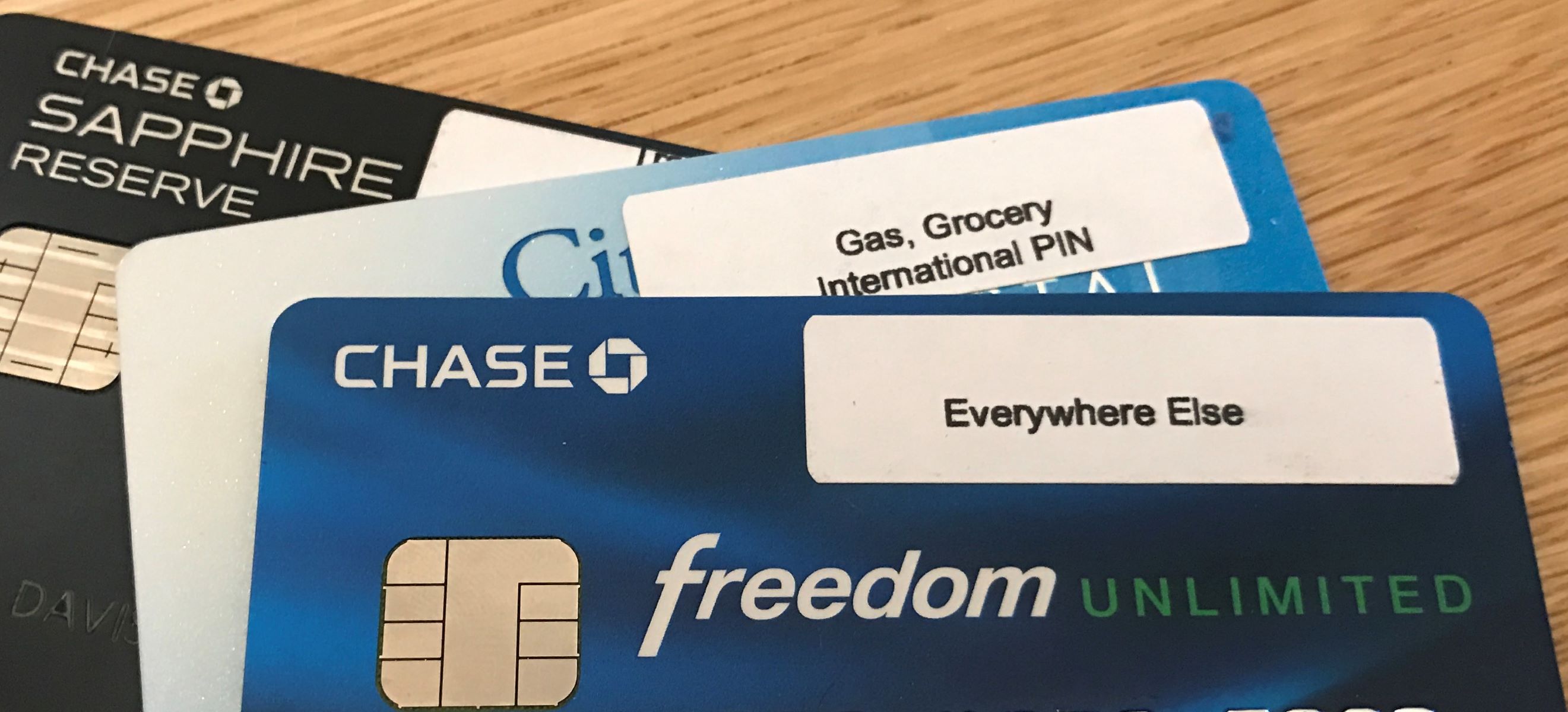

Finance
How Much Does A Cosigner Help On Auto Loans?
Published: February 18, 2024
Learn how a cosigner can improve your chances of getting approved for an auto loan and the impact it has on your finances. Understand the benefits of having a cosigner for your car loan.
(Many of the links in this article redirect to a specific reviewed product. Your purchase of these products through affiliate links helps to generate commission for LiveWell, at no extra cost. Learn more)
Table of Contents
- Understanding the Role of a Cosigner in Auto Loans
- Understanding the Role and Responsibilities of a Cosigner
- The Impact of Cosigning on Loan Approval and Terms
- The Benefits of Securing a Cosigner for an Auto Loan
- Understanding the Potential Drawbacks of Cosigning for an Auto Loan
- Navigating the Process of Securing a Cosigner for an Auto Loan
- Navigating the Dynamics of Cosigning for Auto Loans
Introduction
Understanding the Role of a Cosigner in Auto Loans
When it comes to securing an auto loan, many individuals find themselves facing various challenges, particularly if they have a limited credit history or a less-than-ideal credit score. In such instances, having a cosigner can significantly impact the loan approval process and the terms offered by lenders. This article aims to delve into the intricacies of cosigning for auto loans, shedding light on the advantages, disadvantages, and the overall impact of having a cosigner.
For individuals with a less-than-perfect credit history, a cosigner can be a beacon of hope, opening doors to favorable loan terms and increased approval odds. However, it’s essential to understand the responsibilities and potential risks associated with cosigning before embarking on this financial journey. By exploring the nuances of cosigning for auto loans, readers will gain valuable insights into the dynamics of this arrangement, empowering them to make informed decisions when navigating the world of auto financing.
What is a Cosigner?
Understanding the Role and Responsibilities of a Cosigner
A cosigner, also known as a guarantor, is an individual who assumes the responsibility of repaying a loan if the primary borrower fails to meet their obligations. In the context of auto loans, a cosigner essentially acts as a safety net for the lender, providing an additional layer of assurance regarding the repayment of the loan. This arrangement is particularly common when the primary borrower has a limited credit history, a low credit score, or other factors that may raise concerns for the lender.
It’s important to note that a cosigner is not the same as a co-borrower. While both parties are liable for the loan, a cosigner typically does not have a stake in the vehicle being financed. Instead, their role is to offer their creditworthiness and financial stability to bolster the primary borrower’s loan application. Essentially, the cosigner’s credit history and income are used to supplement the primary borrower’s qualifications, potentially leading to more favorable loan terms and a higher likelihood of loan approval.
From a lender’s perspective, having a cosigner reduces the risk associated with lending to individuals who may not meet the standard credit requirements. This added layer of security can make the difference between a declined loan application and a successful approval, providing an avenue for individuals with less-than-ideal credit profiles to secure financing for a vehicle.
While the concept of cosigning may appear straightforward, it’s crucial for both the primary borrower and the cosigner to fully comprehend the implications of this arrangement. The decision to cosign for an auto loan should not be taken lightly, as it entails significant financial obligations and potential consequences for all parties involved.
How Does a Cosigner Help on Auto Loans?
The Impact of Cosigning on Loan Approval and Terms
Having a cosigner can profoundly influence the outcome of an auto loan application, particularly for individuals who may face challenges in obtaining favorable terms based solely on their own creditworthiness. Here’s how a cosigner can make a difference:
- Enhanced Creditworthiness: When a lender assesses an auto loan application that includes a cosigner, they consider the combined financial strength of both the primary borrower and the cosigner. This can result in a higher overall creditworthiness, potentially offsetting any deficiencies in the primary borrower’s financial profile.
- Increased Approval Odds: With a cosigner onboard, the likelihood of loan approval generally rises, especially for individuals with limited credit history or a suboptimal credit score. Lenders may be more inclined to extend credit when they have the added assurance of a cosigner’s involvement.
- Favorable Loan Terms: In addition to improving the chances of approval, having a cosigner can lead to more favorable loan terms, such as a lower interest rate, higher loan amount, or a longer repayment period. This is attributed to the reduced risk perceived by the lender due to the cosigner’s commitment to the loan.
- Opportunity to Build Credit: For the primary borrower, successfully repaying an auto loan with the assistance of a cosigner can serve as a catalyst for improving their credit history. Timely payments and responsible financial behavior can contribute to enhancing the borrower’s credit profile, potentially paving the way for future independent financing endeavors.
It’s important to recognize that while a cosigner can bolster the primary borrower’s loan application, they also shoulder a substantial responsibility. Before agreeing to cosign, individuals should thoroughly evaluate their own financial capacity and the potential implications of this commitment. Open communication and a clear understanding of each party’s obligations are essential to fostering a successful cosigning arrangement.
Advantages of Having a Cosigner
The Benefits of Securing a Cosigner for an Auto Loan
Having a cosigner can offer numerous advantages for individuals seeking auto financing, particularly in scenarios where their individual credit profile may not meet the stringent requirements set by lenders. Here are the key advantages of having a cosigner for an auto loan:
- Improved Loan Approval Odds: One of the primary benefits of having a cosigner is the increased likelihood of loan approval. Lenders are more inclined to extend credit when a cosigner with a strong credit history and stable financial standing is involved, mitigating the risk associated with the loan.
- Favorable Loan Terms: With a cosigner, the primary borrower may secure more favorable loan terms, including a lower interest rate, higher loan amount, or an extended repayment period. This can translate to reduced overall borrowing costs and more manageable monthly payments.
- Access to Higher Loan Amounts: A cosigner’s involvement can enable the primary borrower to qualify for a higher loan amount than they would on their own, providing greater flexibility in selecting a vehicle and potentially covering additional expenses such as taxes and registration fees.
- Opportunity to Build or Rebuild Credit: For individuals aiming to establish or improve their credit history, successfully repaying an auto loan with the assistance of a cosigner can serve as a stepping stone. Timely payments and responsible financial management can contribute to enhancing the borrower’s creditworthiness over time.
- Path to Independent Financing: In some cases, the support of a cosigner on an initial auto loan can pave the way for the primary borrower to qualify for independent financing in the future. By demonstrating responsible repayment behavior, the borrower may strengthen their credit profile, ultimately reducing the reliance on a cosigner for subsequent loan applications.
It’s essential for both the primary borrower and the cosigner to recognize the mutual benefits of this arrangement, as well as the associated responsibilities. Clear communication and a shared understanding of the expectations and potential outcomes are vital components of a successful cosigning partnership.
Disadvantages of Having a Cosigner
Understanding the Potential Drawbacks of Cosigning for an Auto Loan
While having a cosigner can offer significant advantages, it’s crucial to acknowledge the potential drawbacks and risks associated with this arrangement. Here are the key disadvantages of having a cosigner for an auto loan:
- Financial Obligations: Cosigning entails a substantial financial responsibility for the cosigner. In the event that the primary borrower defaults on the loan or misses payments, the cosigner is legally obligated to repay the outstanding amount, potentially leading to strained relationships and financial repercussions.
- Impact on Credit: The loan status, including any late payments or defaults, directly affects the cosigner’s credit report. Negative occurrences can tarnish the cosigner’s credit history, hindering their ability to secure financing or obtain favorable terms for other financial products.
- Limited Financial Flexibility: Being a cosigner can restrict the individual’s capacity to obtain additional credit or loans, as the cosigned obligation is factored into their overall debt-to-income ratio. This may impede the cosigner’s ability to pursue their own financial goals or secure financing when needed.
- Potential Strain on Relationships: Cosigning can introduce strain into personal relationships, particularly if there are challenges with loan repayment or financial difficulties. Disputes arising from the loan arrangement may lead to tension and conflicts between the primary borrower and the cosigner.
- Dependency on a Third Party: For the primary borrower, relying on a cosigner may create a sense of dependency and limit their ability to establish independent financial credibility. This dependence can hinder personal financial growth and autonomy.
It’s imperative for both the primary borrower and the cosigner to thoroughly evaluate the implications of cosigning, openly discuss their expectations and concerns, and clearly outline the terms of the agreement. Transparency and a comprehensive understanding of the potential challenges are vital in fostering a mutually beneficial and respectful cosigning relationship.
How to Find a Cosigner
Navigating the Process of Securing a Cosigner for an Auto Loan
Securing a cosigner for an auto loan is a significant undertaking that requires careful consideration and open communication. Here are the key steps involved in finding a cosigner:
- Evaluate Personal Relationships: When seeking a cosigner, individuals often turn to close friends or family members who have a strong credit history and are willing to assume the responsibility. It’s essential to approach this decision with sensitivity and respect, considering the potential impact on the relationship.
- Openly Discuss Financial Obligations: Before approaching a potential cosigner, it’s crucial to have an open and honest conversation about the financial obligations and potential risks involved. Clearly outline the terms of the loan, including the repayment schedule, and address any concerns or questions the cosigner may have.
- Assess the Cosigner’s Eligibility: The cosigner should possess a stable income, a favorable credit history, and a willingness to support the primary borrower throughout the loan term. It’s important to verify that the cosigner meets the lender’s requirements and is fully aware of their responsibilities.
- Seek Legal and Financial Guidance: Both the primary borrower and the cosigner may benefit from seeking legal or financial advice to fully understand the legal implications and potential risks associated with cosigning. This can help ensure that all parties are well-informed before entering into the agreement.
- Establish Clear Terms and Expectations: Once a cosigner is identified, it’s crucial to establish clear terms and expectations in writing. This may include a cosigner agreement outlining the responsibilities, the process for addressing missed payments, and the potential exit strategies for the cosigner.
It’s important to approach the process of finding a cosigner with empathy and transparency, recognizing the significance of the commitment being asked of the cosigner. Additionally, maintaining open lines of communication and demonstrating appreciation for the cosigner’s support can contribute to a positive and respectful cosigning relationship.
Conclusion
Navigating the Dynamics of Cosigning for Auto Loans
Understanding the role of a cosigner in the context of auto loans is essential for individuals navigating the complexities of securing financing, particularly when faced with credit-related challenges. The decision to involve a cosigner carries significant implications for both the primary borrower and the cosigner, necessitating careful consideration and clear communication throughout the process.
While a cosigner can substantially enhance the likelihood of loan approval and lead to more favorable loan terms, it’s important to recognize the potential drawbacks and risks associated with this arrangement. The mutual benefits and responsibilities of cosigning should be thoroughly evaluated, and open dialogue is crucial to establishing a respectful and transparent partnership.
Ultimately, the process of finding a cosigner entails empathy, respect, and a comprehensive understanding of the financial and personal implications involved. By approaching the search for a cosigner with diligence and sensitivity, individuals can foster a supportive and mutually beneficial cosigning relationship, paving the way for successful auto financing endeavors.
As individuals navigate the intricacies of cosigning for auto loans, prioritizing financial responsibility, clear communication, and a shared commitment to loan obligations can lay the foundation for a positive and respectful cosigning experience. By recognizing the impact of cosigning on credit profiles, relationships, and financial well-being, individuals can make informed decisions that align with their long-term financial goals.














